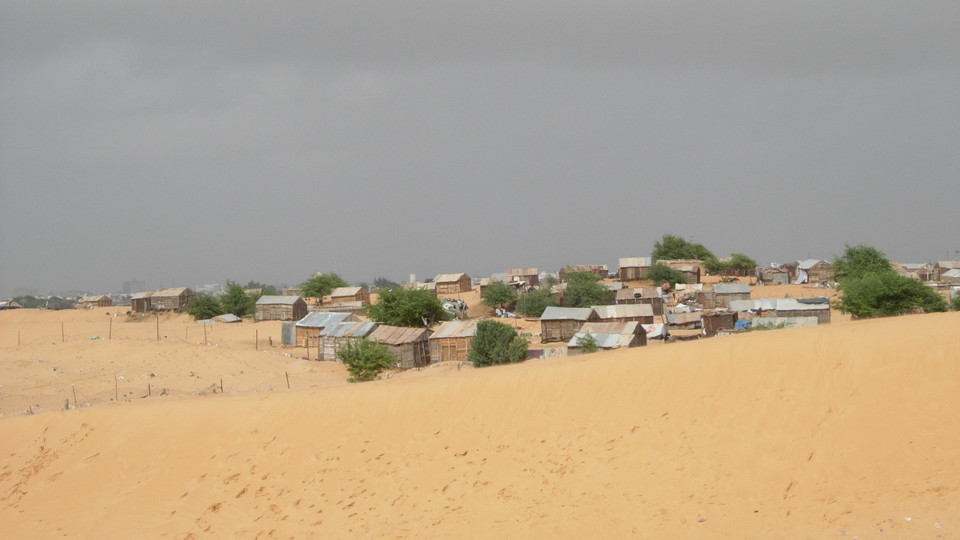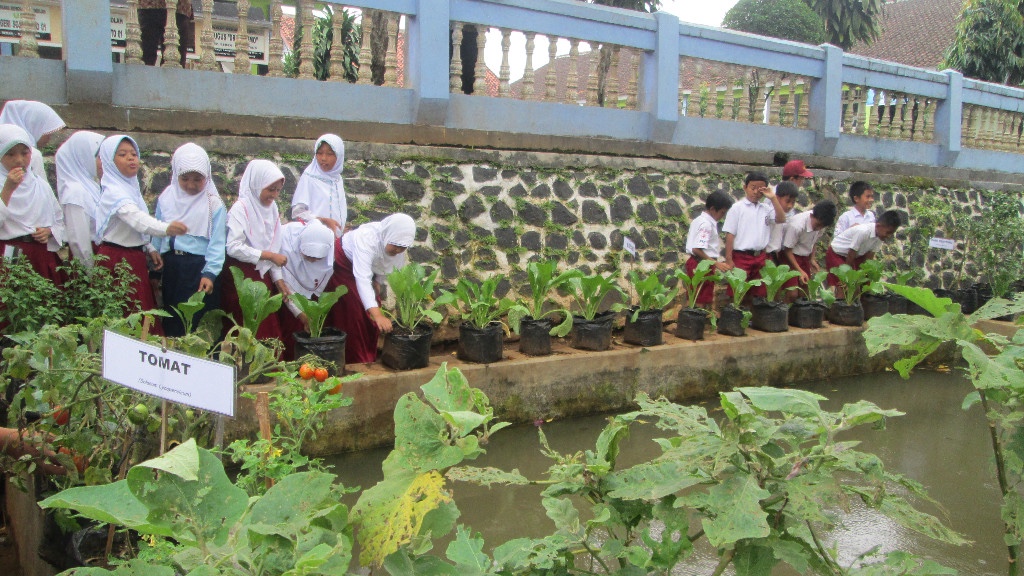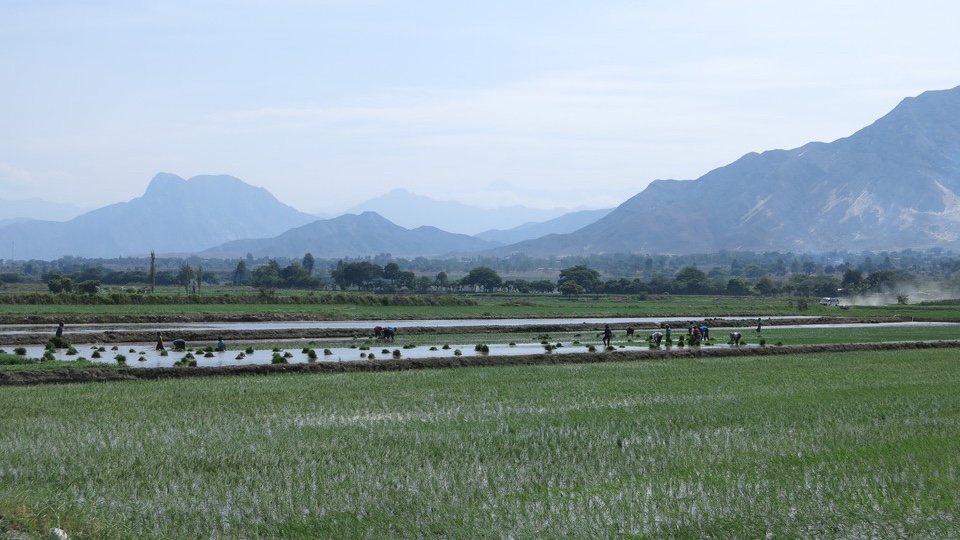Group | Ecosystem Services, Climate & Health

The Ecosystem Services, Climate & Health group investigates the importance of ecosystem services for human health and wellbeing, with particular attention to water and sanitation for poor populations in the developing world. Our working hypothesis is that appropriate ways to manage rapid demographic and ecological transformations (e.g. urbanization and climate change) must be found in order to maintain valuable ecosystem services, particularly in urban contexts, which in turn will protect and promote the health of human populations and alleviate poverty.
Our Research Focus
Past and ongoing studies in West Africa, South Africa, Latin America and Asia pursue a broadly applicable ecosystem health approach, and include various stakeholders and local communities to find setting-specific solutions for a wide range of public health challenges: wastes recovery and reuse, mitigation and adaptation to climate change, better schoolchildren health and nutrition.
Our Expertise
The group is composed of multidisciplinary competences ranging from sanitary engineering to environmental epidemiology and including geographers, social scientists, biologists and public health experts. The project teams are using multidisciplinary approaches to understand health risks associated with water, sanitation and hygiene, interlinks between WASH, diarrhea, intestinal parasitic infections, malaria, schistosomiasis and nutrition, reduction of vulnerabilities and increasing resilience of communities and systems to climate change effects.

Guéladio Cissé
Professor, PhD
Group Leader
+41612848304
gueladio.cisse@swisstph.ch

Jürg Utzinger
Professor, PhD
Director
+41612848129
juerg.utzinger@swisstph.ch
Highlights

Complementary school garden, nutrition, water, sanitation, and hygiene interventions to improve schoolchildren health and nutritional status
The project “Vegetables go to School: Improving Nutrition through Agricultural Diversification” (VgtS), is involving Bhutan, Burkina Faso, Indonesia, Nepal and Philippines. The research fellow case study focuses on malnutrition, intestinal parasitic infections and water, sanitation and hygiene (WASH) conditions interlinks for school children in Burkina Faso. Objectives: (i) to assess schoolchildren’s nutritional and health status; (ii) to assess the water, sanitation and hygiene conditions at the level of schools, households and communities; (ii) to analyze the links between these conditions and other socio-economic factors with the nutritional and health status.
Link to Project

Resource Recovery & Reuse: From Research to Implementation. Phase 2
The overall goal of the RRR project is to implement globally and at large scale recovery and safe reuse models of resources generated from liquid and solid waste streams while safeguarding public health. The Phase I of the project - research oriented - covered 4 cities (Bangalore, India; Hanoi, Vietnam; Kampala, Uganda; Lima, Peru). The second phase of the project - implementation-oriented- in two cities: Kampala (GIZ is the implementing Agency) and Lima (Eawag as implementing agency). Our team will contribute in both sites with training, evaluation and monitoring.
Vegetables Go to Schools. Phase II
This project addresses education, water, sanitation, hygiene, health, nutrition and agriculture/horticulture in an integrated way to change the behaviour of schoolchildren and their families. It aims to contribute to improved nutritional security through school vegetable gardens linked to other school-based health, nutrition and environmental initiatives. A first Phase of 4 years - research oriented- has been completed in June 2016. The second phase (July 2016 – June 2017) will allow translating the first phase results into policy frameworks in the different countries (Bhutan, Burkina Faso, Indonesia, Nepal and Philippines).
Joint South Africa and Swiss Chair in Global Environmental Health
This chair in Cape Town university addresses emerging environmental health problems in South Africa. The collaboration consists of four projects: (i) a cohort study on agricultural pesticides effects on the development and respiratory health effects among rural children; (ii) a cohort study on the effects of ambient air pollutants on childhood asthma; (iii) an ecosystem approach on the health risks associated with chemical pollution and bio contamination of water sources and soils; and (iv) a health risk assessment on the impact of climate change on ecosystems, water and chemical usages.
Selected Projects
All ProjectsLatest Publications
All PublicationsMakgoba L, Abrams A, Röösli M, Cissé G, Dalvie M.A. DDT contamination in water resources of some African countries and its impact on water quality and human health. Heliyon. 2024;10(7):e28054. DOI: 10.1016/j.heliyon.2024.e28054
Wright C.Y et al. Climate change and human health in Africa in relation to opportunities to strengthen mitigating potential and adaptive capacity: strategies to inform an African "brains trust". Ann Glob Health. 2024;90(1):7. DOI: 10.5334/aogh.4260
Bühler J.L et al. The association between apparent temperature and hospital admissions for cardiovascular disease in Limpopo province, South Africa. Int J Environ Res Public Health. 2023;20(1):116. DOI: 10.3390/ijerph20010116
Doumbia M, Coulibaly J.T, Silué D.K, Cissé G, N’Dione J.-A, Koné B. Effects of climate variability on malaria transmission in southern Côte d'Ivoire, West Africa. Int J Environ Res Public Health. 2023;20(23):7102. DOI: 10.3390/ijerph20237102
Kouakou E, Soro N, Koiadia N, Cissé G, Koné B. Analyse qualitative du risque de contamination des maraîchers par les produits phytosanitaires à Korhogo, Côte d’Ivoire. Environ Ris Santé. 2023;22(2):118-130. DOI: 10.1684/ers.2023.1713
 Renion Saye
Renion Saye